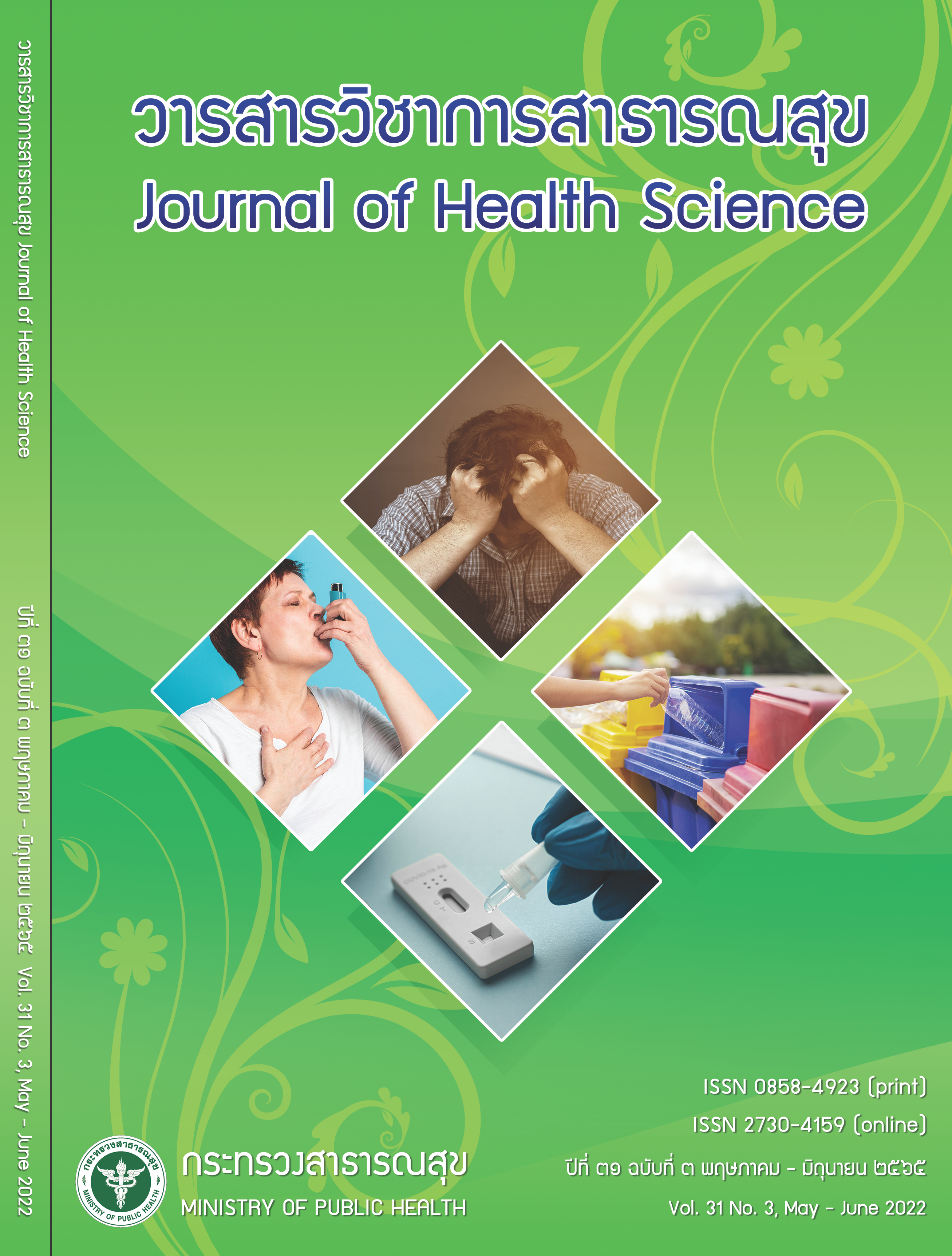Development of a Household Solid Waste Sorting Behavior Promoting Program for Local Administrative Organizations
Keywords:
program development, household solid waste, local administrative organizationsAbstract
Currently, the garbage crisis is one of the environmental problems that affect health. Solving the problems at the source of waste management or at the household level should therefore be a sustainable solution, especially the local administrative organizations who are primarily responsible for such matters. The objective of this research was to develop a program to promote the behavior of household solid waste separation of people for local administrative organizations by applying intervention mapping. The study consisted of 6 steps: (1) problem analysis, (2) designing relational tables for determining the purpose of changing the causal factors, (3) defining the theory, process, and strategy for its application, (4) selecting processes and strategies for program design, (5) developing action plans for sustainable development, and (6) creating an evaluation plan. The program was drafted and its quality was reviewed and assessed by five experts. Data were analyzed with mean and standard deviation. The results of the study revealed that the program developed according to the said process consisted of (1) principle and rationale, (2) program objectives, (3) roles and duties of relevant personnel, (4) program structure and activities, (5) program evaluation, and (6) identification of conditions for success. The overall quality assessment results of the developed programs were at the highest level. When considering each aspect, including accuracy, suitability, and feasibility of execution, the highest level of quality criteria was met. In terms of usefulness and general choice, it passed a high level of quality criteria. Therefore, this research suggests that the local government should implement the developed program in order for people to develop sustainable household solid waste segregation behavior.
Downloads
Downloads
Published
How to Cite
Issue
Section
License

This work is licensed under a Creative Commons Attribution-NonCommercial-NoDerivatives 4.0 International License.







